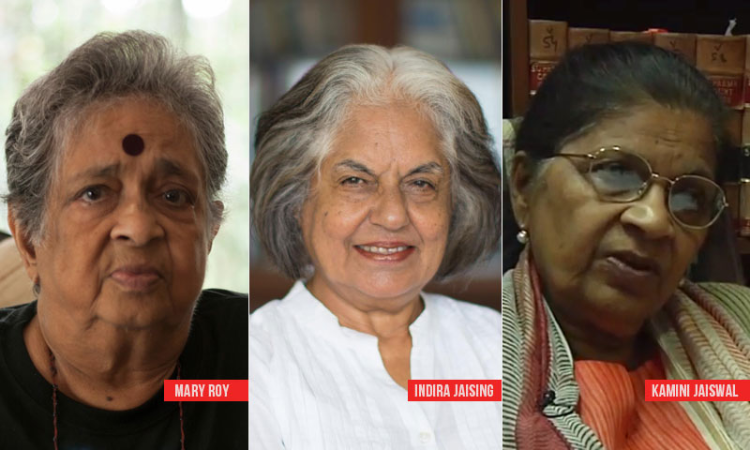- Home
- /
- Top Stories
- /
- Challenge To Patriarchy :...
Challenge To Patriarchy : Remembering 'Mary Roy Case' On Its 34th Year
LIVELAW NEWS NETWORK
24 Feb 2020 1:16 PM IST
Today marks the 34th year of the land mark judgment in the Mary Roy case, which remains a milestone in the judicial journey for advancing the cause of gender justice.Mary Roy, educationist and activist (and mother writer/activist Arundhati Roy), approached the Supreme Court by way of a writ petition under Article 32 of the Constitution, challenging the discrimination against Syrian...
Tags
Gender EqualityGender JusticeSenior Advocate Indira JaisingMary Roy CaseSenior Advocate Kamini JaiswalMary RoyGender EqualityIndian Succession Act 1925Gender JusticeSenior Advocate Indira JaisingTravancore Christian Succession ActSenior Advocate Kamini JaiswalIndian Succession Act 1925Travancore Christian Succession Act
Next Story



